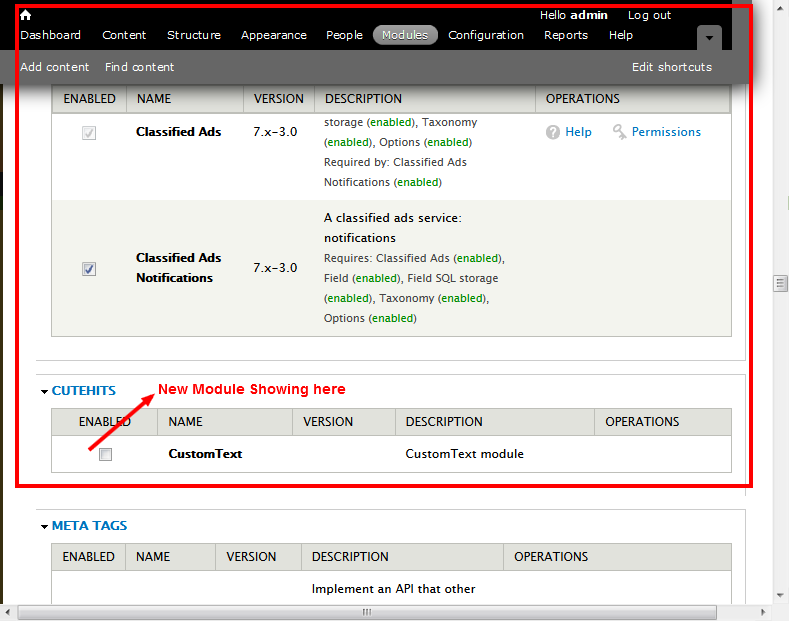What is Drupal Hooks and how to invoke hooks
Drupal Hooks are the beauty of Drupal . It provides easy way to enhance existing functionality of any drupal module.
For example: Suppose you are using any module say “ed_classified” Module to create your classified based site and you want a require as soon as someone post a classified then admin should get notified for same.
If we analyze the requirement then we can easily see that there are two different modules needs to interact together.
- As soon as someone add a new classified entry. This will be handled by ed_classiffied module.
- An email should get fired to admin this will be handled by user module.
So idea of hook is that intervene in existing flow of one module without direct tempering of that module. We can create separate function that will perform new task and only this function will get called through hooks. Calling of function (hooks ) are known Hook Invoking .
How does any module invoke hook function of other module:
In any module there is always a .module file it contain all important function related to configuration and might be some function might contain process logic as well. You can easily search “module_invoke_all” into this file. If this file contain any “module_invoke_all” function then it means this module has already calling hooks through this function. If any module_invoke_all called from one module then hook function implementation from all modules throughout the website will get called automatically.
Syntax to call hook through any module in Drupal 7
module_invoke_all(‘myhook_name’,$hook);
module_invoke_all has two argument
Aruguement 1: Hook name :this is the function name that will implement hooks functionality.
Argument 2: $hook: it contain an parameter that will pass to the hook.
Return Value
It provides return value of hook implementation. Even in case of multiple array it should be merged into single one array only.
Prectical example for developers
Cutehits.module file might contain a function Like
/**
* List of fruit.
*/
function cutehits_all_fruits() {
$fruits = array(‘apple’, 'banana', 'mango');
$fruits_more = module_invoke_all('cutehits_addhook');
$fruit_all = array_merge($fruits, $fruits_more);
$output = theme('item_list', array('items' => $fruit_all));
return $output;
}
Now drupal will check each and every module of that if there is some module that contain function named “cutehits_addhook” in any other .module file. If found then that function will also get called from it.
Suppose drupal found any other test module which contain this function then it will get defined like below
/**
* Implements test_ cutehits_addhook();
*/
function test_ cutehits_addhook () {
return 'Graves';
}
Now this function will get called from that module. Hope you understood the concept now.
Chandra Shekhar
Latest posts by Chandra Shekhar (see all)
- Best practices for micro service design - January 23, 2022
- Spring Boot - January 23, 2022
- Java - January 23, 2022





Recent Comments